Sorry, this entry is only available in French.
entrée libre
Friday 10 October 2014
17:00-18:30
Eric Triton (Guitar & Vocals) teams up with Norbert Planel (Cajon) and Kurwin Castel (Doumdoum) for an entirely unique take on Mauritian Blues; the very essence of Tritonik. Their soulful music combines Blues grooves spiced with African Rhythms and Indian percussion for a rare experience that they proudly claim. Oozing with raw Mauritian energy, the sounds produced by this powerful trio, will leave you hungry for more.
entrée libre
Thursday 9 October 2014 .
17:00-18:30
Child of Cassis, peripheral and populous ghetto of Port-Louis, Menwar has never stopped singing: he has gone through life defending the sega, music of swinging beats, musical heritage of the Mascarene Islands, and he has been able to spread its popularity beyond the Indian Ocean. With his black hands – the meaning of “Menwar” – he has also founded a music school that teaches the ravanne, tambourine-like instrument integral to the sega, through which he is able to transmit a skill which runs the risk of getting lost to history. He is a consummate artist, armed with both social integrity and emotional power.
free entry
Wednesday 8 October 2014 .
17:00-18:30
It’s with a smile to the lips that Yoan puts himself at his guitar to perform the new single from his album Dimé Nwa Gueté, A turn of phrase that gives away the humour of his lyrics. The young songwriter is also inspired by reality, inspired by his father who initiated him to music, mainly to the culture of the local sega and of jazz, whose resonances we find in his album, a hybrid mixture of styles that the singer with the soul-drenched voice describes as an amazing experience.
Our meeting place during the Festival will be at the Café du Vieux Conseil in Port Louis, for the Soundtracks at 17:00. After the Film Bazaar Forum and before the screenings, isn’t that the best time to meet around a drink and some good music? So, let the music play!
All audiences
programme planning
Lively Up!
free entry

Wednesday 8 October 2014
17:00-18:30
It’s with a smile to the lips that Yoan puts himself at his guitar to perform the new single from his album Dimé Nwa Gueté, A turn of phrase that gives away the humour of his lyrics. The young songwriter is also inspired by reality, inspired by his father who initiated him to music, mainly to the culture of the local sega and of jazz, whose resonances we find in his album, a hybrid mixture of styles that the singer with the soul-drenched voice describes as an amazing experience.

Thursday 9 October 2014
17:00-18:30
Child of Cassis, peripheral and populous ghetto of Port-Louis, Menwar has never stopped singing: he has gone through life defending the sega, music of swinging beats, musical heritage of the Mascarene Islands, and he has been able to spread its popularity beyond the Indian Ocean. With his black hands – the meaning of “Menwar” – he has also founded a music school that teaches the ravanne, tambourine-like instrument integral to the sega, through which he is able to transmit a skill which runs the risk of getting lost to history. He is a consummate artist, armed with both social integrity and emotional power.
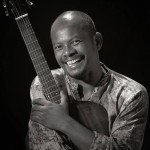
Friday 10 October 2014
17:00-18:30
Eric Triton (Guitar & Vocals) teams up with Norbert Planel (Cajon) and Kurwin Castel (Doumdoum) for an entirely unique take on Mauritian Blues; the very essence of Tritonik. Their soulful music combines Blues grooves spiced with African Rhythms and Indian percussion for a rare experience that they proudly claim. Oozing with raw Mauritian energy, the sounds produced by this powerful trio, will leave you hungry for more.

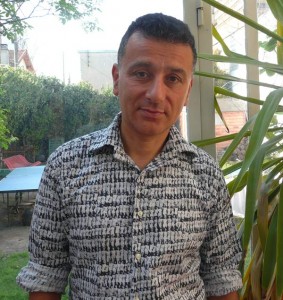
The scriptwriting workshop for short films is the historical workshop of the Iïe Courts Festival. Under the guidance of the French scriptwriter and director Renaud Cohen, three writer-directors selected during an initial call for projects will work intensively on their fiction projects. This residence is the first stage of the programme FILM FABRIK.
This workshop is being organised with the support of the French Cultural Institute of Mauritius.
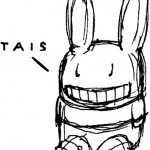
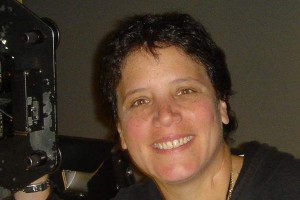
It’s been a long time since the Festival has last hosted an animation workshop. Under the guidance of the director Madi Piller, five writer/animators selected during an initial call for projects will work intensively on their fiction project. This residence is the first stage of the programme FILM FABRIK.
This workshop is being organised in collaboration with TAIS (Toronto Animated Image Society) and with the support of the Canada Council for the Arts.
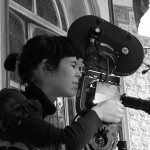
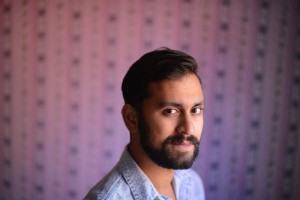
How to develop one’s own style? How to learn to trust one’s instinct? How to give directions to actors? All these questions will be explored in theory but also in practice under the guidance of the young independent director from New York, Shiva Bajpai.
Programme >
With the support of the US Embassy in Mauritius.
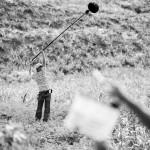
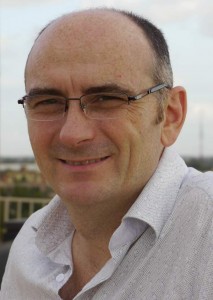
Lend us your ear… This year, we pay attention to sound!
Programme >
FILM FABRIK – Film Fabrik is a programme aimed at supporting the writing and production of short Mauritian films. un Put into place by the association Porteurs d’Images, this programme offers to writers/directors the technical, financial and logistical means to make their film (writing, production, screening and distribution).
FILM FABRIK unfolds itself in 2 stages of selection:
Paying special care to the cinematic education of all Mauritian children and teenagers, l’Association Porteurs d’Images, in collaboration with the NGO Safire et the Lycée des Mascareignes, proposes to us two Programming Workshops intended for a young public.
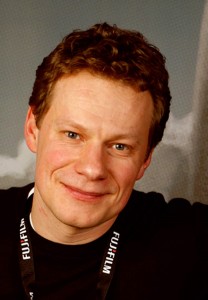 Under the direction of Vincent Kaluza, the teenagers of the NGO Safire and of the Audiovisual Stream of the Lycée des Mascareignes will be given the opportunity to familiarise themselves with programmation. Comment is a film programme set up? Why do we like a film? What film to produce for what public? How to amaze your audience? The teenagers will discuss together to set up a programme of short films which could be presented to the public during the Festival’s screenings.
Under the direction of Vincent Kaluza, the teenagers of the NGO Safire and of the Audiovisual Stream of the Lycée des Mascareignes will be given the opportunity to familiarise themselves with programmation. Comment is a film programme set up? Why do we like a film? What film to produce for what public? How to amaze your audience? The teenagers will discuss together to set up a programme of short films which could be presented to the public during the Festival’s screenings.
Regional Centre for Arts Education
Arts education and training (in the cinema and audiovisual field) in Auvergne.
Sauve qui peut le court métrage has been chosen as a regional arts education centre by the National Center of Cinematography and the moving image (CNC) to identify the needs of those working directly in the field as well as to cultivate the cinematic arts in the region of Auvergne by strengthening the links between the people, resources, local structures and film professionals.
In collaboration with Sauve qui Peut le Court Métrage, Lycée des Mascareignes and the NGO Safire.
Wednesday 8 October 2014 : 13:00-17:00
Thursday 9 October 2014 : 13:00-17:00
Friday 10 October 2014 : 11:00-17:00
Free entry
Limited number of seats
![]() Application form
Application form
 Practical info
Practical info
For more informations : T. 465 38 26
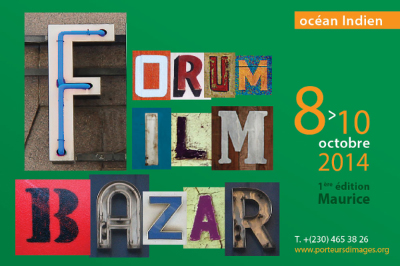
Meeting and sharing the cinematographic resources of the Indian Ocean has been, since the beginnings of Île Courts Festival, an avenue which we keep exploring over and over again. A place where can converge the region’s cinemas, the Festival has been developing itself since 2007 around training workshops and screenings that bring to light a multitude of stories from our islands, themes that resonate with each other, young and dynamic creativity liberating itself from all the practical difficulties of film production to offer unique perspectives on our societies.
Always a place of meetings, Île Courts wants this year – and in all the coming ones – to dig deeper into the issue of the development of an Indianoceanist cinema that is the mirror of our shared identity and reality. This is how the idea of the Film Bazar Forum was born. “Bazar” because it opens its doors to everyone: amateurs, the merely curious, professionals who want to add their thoughts to the collective reflection around this large question of how to define Indianoceanism through the lens of cinema.
We have also wanted to present to you a programme centred around real issues, case studies but also an objective look at what we can today call Indian Ocean cinemas. Beyond the roundtables and formal discussions, we hope that the Forum will also be a place of informal sharing, full of warmth and friendliness shared around a cup of coffee or a meal between the cinematic worlds of our islands, between the viewers, the producers, and the future producers.
As FBF considers itself to have an essentially plural identity, it will thus be an itinerant festival. The second edition, in 2015, will take place on Reunion Island and the third, en 2016, in Comores.
David Constantin
Programmer
Association Porteurs d’Images
Co-organised with our partner festivals et associates of the FIFAI/CIFF and RFC regions.>
In collaboration with the MFDC, the IOC (Indian Ocean Commission), the Malcolm de Chazal Foundation, the Café du Vieux Conseil and the Photography Museum of Port Louis.
Forum Film Bazar : Day 1
Wednesday 8 October 2014
Filming In The City #1
Filmmakers’ gaze on Port Louis
10:00-13:00
In order to compile a small collection on the cities hosting the FBF, the Festival is asking its invitees to produce a deeply personal work about their perspective on the city. Complete artistic freedom is given when it comes to form, the only rule being that the productions must be soundless. Each invitee will be accompanied on her/his outing by two students from the cinema department of the Lycée des Mascareignes.
Lunchtime
Time to meet and chat
13:00-14:30
Opening of the FFB1
Roundtable
Introduction : An Overview of Indian Ocean Cinemas
14:30-16:30
The Festivals of the Indian Ocean propose to us a quick tour of cinematic work being done in the region and the efforts done to support them. What assessment can we make out of our experiences so far? What specific issues seem to arise in multiple places? What are the forces really at play today in this cinema that we qualify as emerging?
Forum Film Bazar : Day 2
Thursday 9 October 2014
Filming In The City #2
Filmmakers’ gaze on Port Louis
10:00-13:00
In order to compile a small collection on the cities hosting the FBF, the Festival is asking its invitees to produce a deeply personal work about their perspective on the city. Complete artistic freedom is given when it comes to form, the only rule being that the productions must be soundless. Each invitee will be accompanied on her/his outing by two students from the cinema department of the Lycée des Mascareignes.
Lunchtime
Time to meet and chat
13:00-14:30
Roundtable
Regional Co-Production: Case Study Of Lonbraz Kann
14:30-16:30
Too small to maintain their own independent film industries, it’s in the best interests of the Indian Ocean islands to combine their technical, artistic and financial means to create a cinema that joins us beyond our national boundaries. Yet, problems at the structural/organizational level often prevent genuine regional collaborative relationships from being established and maintained. Using the case study of the production of Lonbraz Kann as starting point, this debate hopes to take stock of the resources available to us today and identify any gaps and difficulties.
Forum Film Bazar : Day 3
Friday 10 Octobre 2014
Roundtable
Distribution/Circulation
Bringing greater visibility to Indian Ocean film: FILM. BOX and the RFC
11:00-13:00
Each year, the countries of the Indian Ocean produce a certain number of short films, but most of these remain invisible to its primary target audience: that of their country of origin and of other Indian Ocean countries. It is sometimes even easier to have them be seen in distant foreign countries than within the region. Also implicit here is the issue of the money earned by artists through the exploitation of their creative works.
What are the existing resources today? What are the structures to set up and which partners could play a more important role? How to create a system of collaboration between Indian Ocean countries? How to reconcile our differences when dealing with the ways creative works are exploited and financially remunerated?
Lunchtime
Time to meet and chat
13:00-14:30
Roundtable
What do the films of the Indian Ocean say about us?
14:30-16:30
Is it possible to point out what currents cut across the various cinemas of the Indian Ocean? What do our films say about our societies, our histories, our dreams? Comparative views on the cinematographic production of the region.
Since 2012, Île Courts Festival invites a great independent filmmaker, hailing from Africa or Asia, to be the patron of the festival. After the Senegalese director Moussa Touré, it’s in 2014 the turn of one of the leaders of Indian independant cinema, Anurag Kashyap, to come share with us his vision of filmmaking.
With the support of the Culture & Avenir unit of the Prime Minister’s Office.

The masterclass, is an opportunity for Mauritian directors and film buffs to challenge their ideas about cinemaby meeting a major filmmaker. The Indian scriptwriter, director and producer Anurag Kashyap’s fascination with cinema started from a very early age. He is the director of many critically-acclaimed films which have been praised for their bold visual style and innovative narrative structure. His films have turned him into a iconic figure of the new wave of Indian cinema around the world. In Mauritius, Anurag Kashyap hopes to share with us, in a most candid way, his own deeply personal vision of the seventh art.
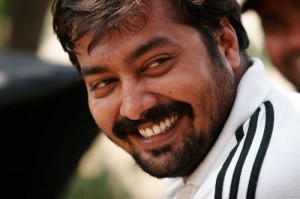 Anurag Kashyap sets the foundation of his career by writing the script of Satya (1998), an unapologetically and brutally realistic gangster film directed by Gopal Varma. In 1999, he writes and directs a short film, Last Train to Mahakali, which earns itself the Special Jury Award at the at 8th Star Screen Awards.
Anurag Kashyap sets the foundation of his career by writing the script of Satya (1998), an unapologetically and brutally realistic gangster film directed by Gopal Varma. In 1999, he writes and directs a short film, Last Train to Mahakali, which earns itself the Special Jury Award at the at 8th Star Screen Awards.
It’s in 2000 that he makes his first steps into feature-length filmmaking with Paanch, which remains up to this day unreleased because of objections from the Indian Censor Board. He then directs Black Friday, a film inspired by the 1993 Mumbai bombings. It earns him the Grand Jury Prize of the Indian Film Festival of Los Angeles in 2005 as well as a nomination for the Golden Leopard (for best international film) at the 57th Locarno International Film Festival in 2004.
In 2009, he writes and directs Dev. D, a modern reinterpretation of Sarat Chandra Chattaopadhyay’s classic novella Devdas. The film is heralded around the world, mainly because of its audaciously original visual style, experimental soundtrack and innovative narrative structure. It is internationally recognized as a revolutionary Indian film..
Anurag Kashyap next directs No Smoking (2007), Return of Hanuman (2007), Gulal (2009), That Girl in Yellow Boots (2011). In addition, he produces Udaan (2010), an official selection at the 2010 Cannes Film Festival in the Un Certain Regard category. Following this, he produces Shaitan in 2011 and co-produces Michael Winterbottom’s Trishna in 2012. His film Gangs of Wasseypur (I & II) is selected for the Director’s Fornight and his production Peddlers, first film of Vasan Bala, for the Semaine de la Critique of Cannes 2012. Peddlers is later honoured with the festival’s prestigious Caméra d’Or award.
In 2013, Anurag Kashyap has no less than five of his films, either directed or produced, selected at Cannes: Ugly for the Directors’ Fortnight, Amit Kumar’s Monsoon Shootout, Bombay Talkies the collective work of a team of five Indian directors, Ritesh Batra’s The Lunchbox (2013) and Ari Folman’s The Congress.
He is a jury member of the 66th Sundance Film Festival in 2013 and, more recently, of the Marrakech International Film Festival side by side with Martin Scorses, the president of the jury of the prize for the best feature film. Kashyap’s films have made him a leading figure of the new wave in Indian cinema at numerous prestigious events around the globe.
In 2013, he is made Chevalier of the Order of Arts and Letters by the French Minister of Culture, Aurélie Filippetti, in a ceremony held at the Palais des Festivals in Cannes.
© 2017 Porteurs d'Images |
Mentions légales |
Développé par Stubborn in Dreams & Sugarsplashes